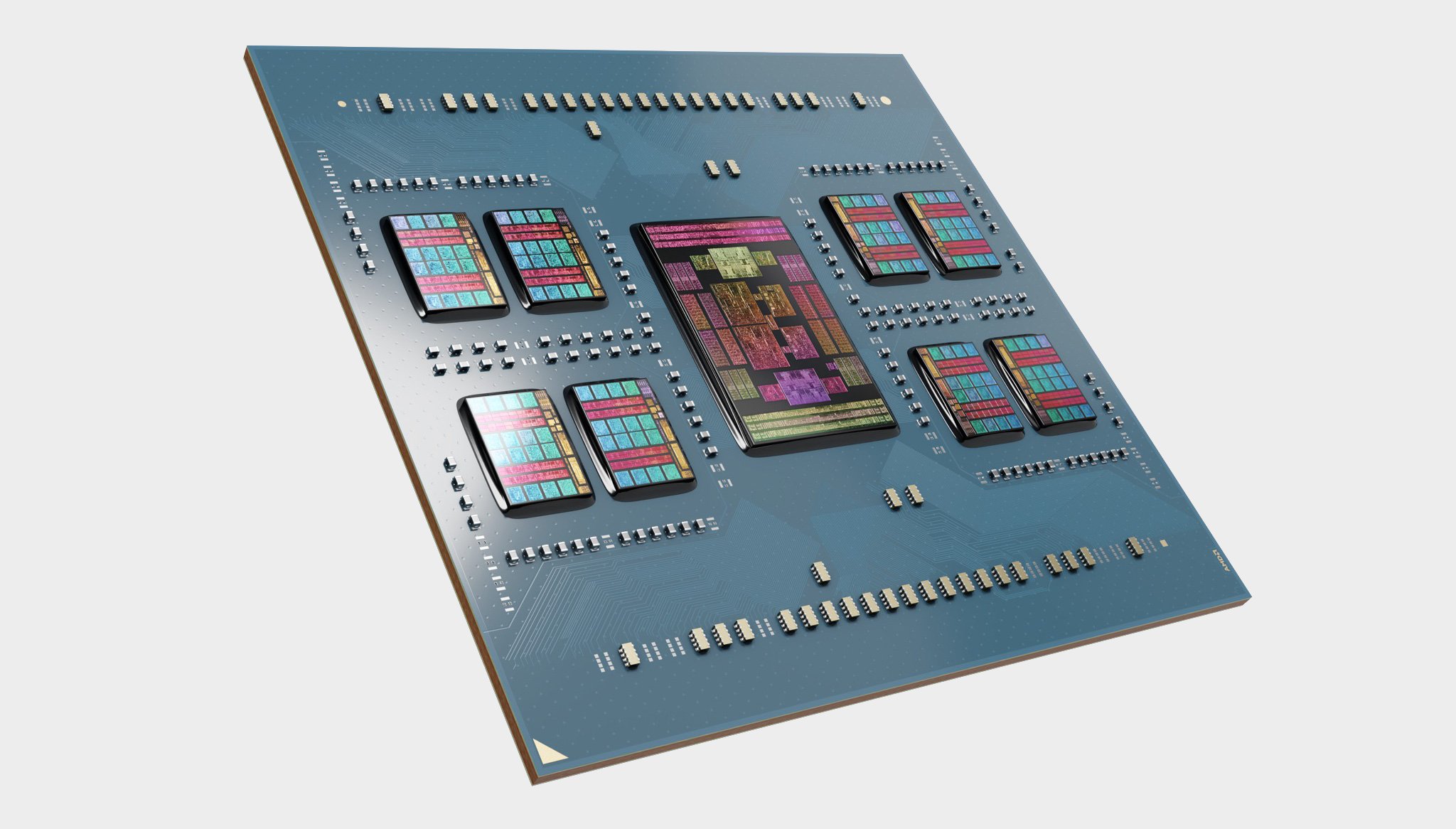
Snippets from well-known leakers are suggesting that 2024 is going to be an exciting year for CPU enthusiasts, as AMD's forthcoming Zen 5 and Zen 5c architectures look like they'll be pushing core counts to new records. The next series of EPYC server chips could even have as many as 192 cores, 384 threads in a single package.
That's according to the usual cohort of reliable leakers, InstLatX64, Kepler_L2, and Harukaze5719 (via Guru3D), who posted their claims on a Twitter thread. If some of the terms are a bit confusing, then let me explain—AMD's CPUs have multiple cores, all sharing a common slice of L3 cache, in a group called a CCX (Core CompleX). The chiplet that houses the CCX is called a CCD (Core Complex Die) and contains one or two CCXs, depending on the generation of architecture.
The first design to be set out like this, Zen 2, has two four-core CCXs per CCD. Desktop Ryzen models, such as the Ryzen 9 3950X, have two CCDs underneath the heat spreader, for a total of 16 cores, 32 threads. AMD's Zen 2 EPYC chips have up to four CCDs, for a maximum of 32 cores, 64 threads.
That changed slightly for Zen 3 and for those chips, the CCX comprises eight cores. Ryzen models still topped out at two CCDs (16 cores, 32 threads) but AMD increased the limit for Zen 3 EPYC processors, which can have up to eight CCDs (64 cores, 128 threads). The current Zen 4 architecture is exactly the same but last year AMD introduced a compact version of that design called Zen 4c.
The reduction in die area taken up by the CCXs meant that two of these can be packed into each CCD chiplet, so though Zen 4c EPYC processors are still limited to eight CCDs, the overall package is home to 128 cores, 256 threads.
And now it looks like AMD is going to push the core count limit even further, with EPYC models topping out at 12 CCDs for a staggering 192 cores, 384 threads. There's no sign that Zen 5 Ryzen chips will have more than 16 cores but you never know, as AMD may feel that it could steal some of Intel's thunder by offering a desktop CPU with more than 24 cores, the amount in the Core i9 14900K.
Harukaze5719 and Kepler_L2 also claim that Zen 6, which is still in the development phase, will have up to 32 cores per CCD, as well as smaller eight-core and 16-core CCD variants.
Gaming PCs obviously don't need as many CPU cores as that, partly because the latest consoles all have eight-core, 16-thread processors, but mostly because games just don't lend themselves to being heavily multithreaded. You're better off using a CPU that has high clock speeds and a pile of low latency cache to speed things along, such as the excellent Ryzen 7 7800X3D.
Workstations and servers, though, are a different kettle of fish, and there are plenty of applications where you can throw as many cores and threads as you can them, and they'll still be wanting more. In terms of pure core count, AMD has Intel well and truly beat in the server market, as the largest Xeon processor you can buy (the Xeon Platinum 8592+) 'only' has 64 cores, 128 threads. AMD's EPYC 9754 breezes past those counts with 128 cores, 256 threads.
If Zen 5 and 5c are going to raise the bar again, then Intel could find itself losing more ground to AMD in the highly profitable data center industry. This year's Computex event is only a month away now, so it probably won't be long before AMD spills all the beans on its new designs.







